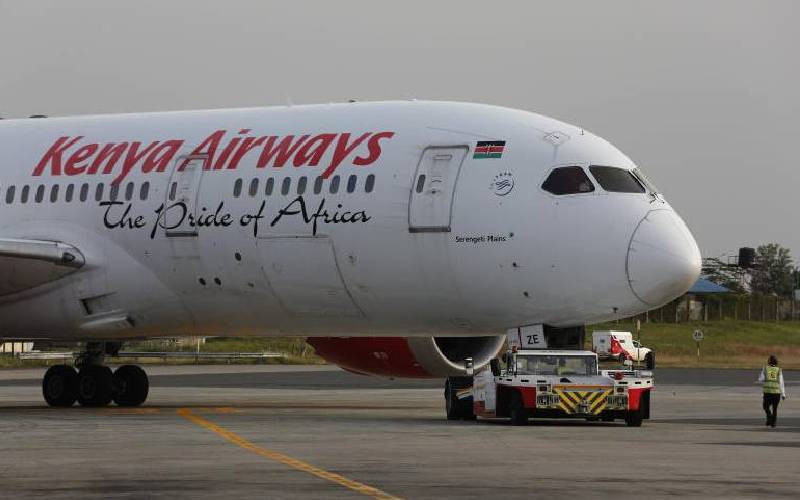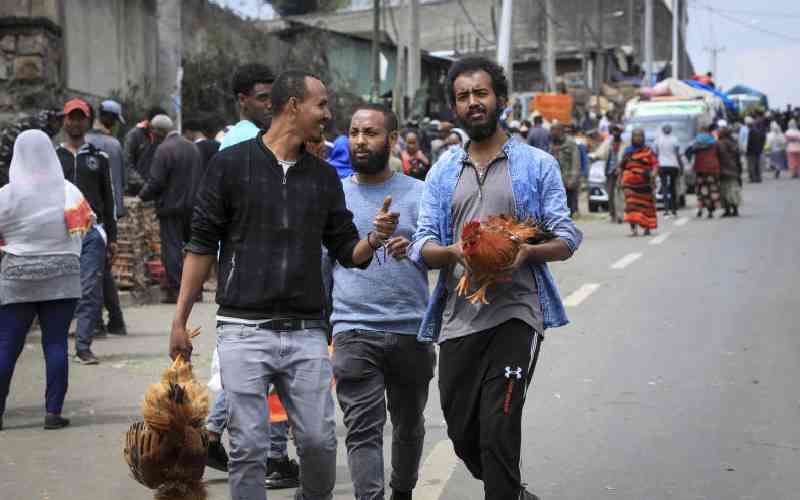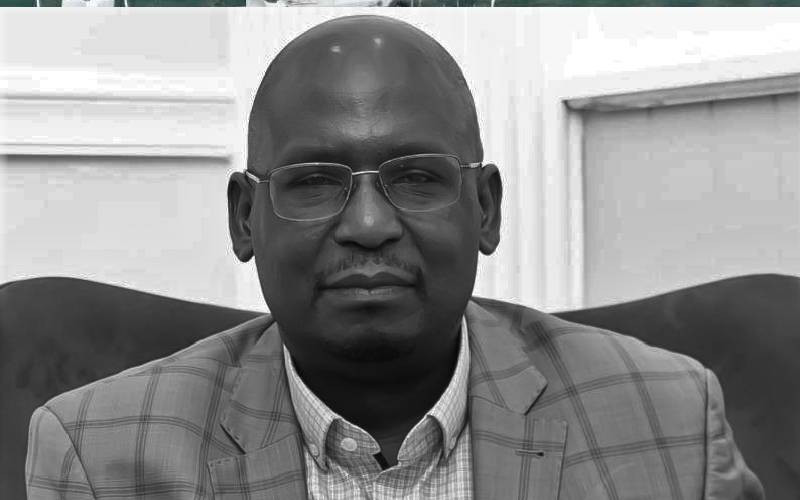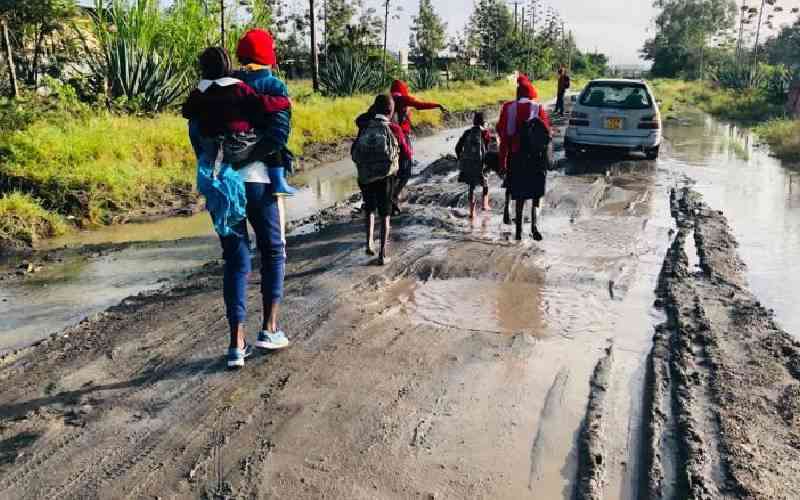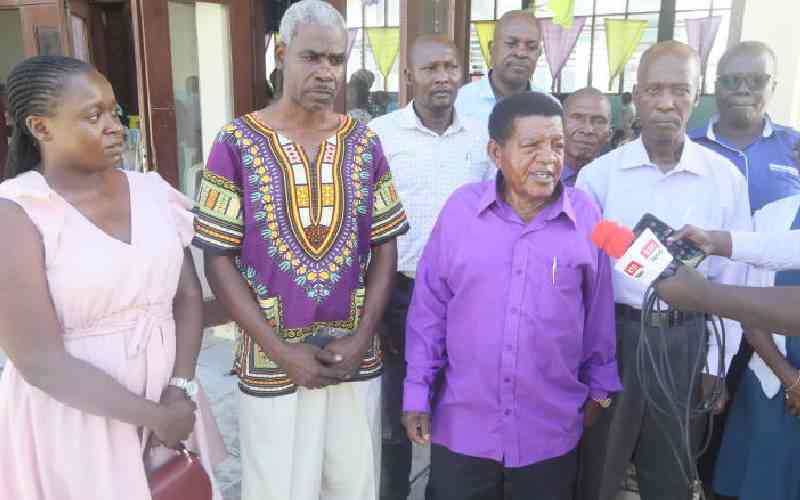By Mugo Kibati
Vision 2030 envisions a Kenya where justice and prosperity are available to all. Security is a crucial pre-requisite for this.
In a society free from danger and fear, the cost of business is low and investors are confident to plan long term.
Citizens also enjoy economic opportunity, fulfilling political engagement and a high quality of day-to-day life. But none of this is possible without a strong law and justice system.
Kenya has made substantial investments in this area. An unprecedented budgetary allocation is resourcing comprehensive and radical judicial reform. The high-impact Judicial Transformation Unit has been established and a detailed strategic plan presented to the public.
These efforts include vetting of judges, competitive recruiting and public interviews to ensure that Kenya’s best legal minds and most passionate reformers are motivated to join the judiciary.
Professional development initiatives encompass increased compensation, sustained exposure to global best practice and a revamped internal training program.
To ensure efficient service delivery, case management is being computerised and community-based courts are being established towards decentralisation.
All these programs aim to reduce the public experience of the justice system as remote and impersonal. Indeed, in public surveys, Kenyans already rate judicial reforms as highly credible.
To ensure this massive investment bears fruit, police reform must be expedited in tandem with judicial transformation. The benefits of the judicial reforms will be compromised if similarly robust and aggressive efforts are not made towards the reform of the police service.
It would make little sense to establish ultra-modern courts while police facilities and systems remain decrepit.
Progress has been made. The Police Oversight Authority is in place and the National Police Service Commission Act has been passed and assented to. Additionally, significant funding for the CCTV surveillance project in Nairobi, Mombasa, Kisumu and Nakuru has been availed.
However, much more needs to be done — and fast. The impasse over appointments to the Police National Service Commission needs to be resolved so that the Inspector General of Police can be appointed and the envisaged police reforms can begin in earnest.
More money needs to be invested to equip the regular and administrative police units to better tackle crime and respond to cases of insecurity.
While the funding recently allocated for the purchase of police vehicles is laudable, the Vision Delivery Secretariat noted with concern that the police were forced to settle for cheaper (previously untested) vehicles due to inadequate funds.
Stay informed. Subscribe to our newsletter
Resources also need to be urgently directed to cutting–edge Vision 2030 initiatives including a forensic laboratory to enhance crime detection, and a national security data system to facilitate information sharing across all security and policing agencies.
More attention also needs to be given to supporting our officers. The colonial-era police stations are dilapidated with many urban posts looking like metal scrap yards due to the large number of abandoned vehicles. Police officers still have to write out reports by hand.
These facilities urgently need renovation and modernisation. All police stations should be ergonomically friendly, aesthetically pleasing, computerised and networked with each other.
in harm’s way
With modern expressways under Vision 2030 and to meet enhanced safety standards Kenyans will now demand, traffic policing needs a complete overhaul – a new driving curriculum, modern traffic control methods (complemented by functioning traffic lighting and CCTV) and zero-tolerance enforcement.
Officers, who place themselves in harm’s way for our protection, need world-class training and infrastructure. And their families need proper welfare, decent housing and modern medical care.
The National Police Service Commission once in place should work with the Inspector General to secure significantly more funding towards these reforms and improvements. Innovative new approaches to the development of police facilities including Public Private Partnerships (PPPs) should be introduced.
Surely more productive use can be made of the vast amounts of prime real estate under the control of the police and non-essential services can be outsourced to dedicated (and more proficient and cost-effective) private sector actors.
Citizens too have a role to play. To boost public participation in the fight against crime and insecurity, the government has rolled out the community policing initiative.
This has improved crime prevention and detection but requires the full support and co-operation of all Kenyans.
On the one hand, security threats, from car-jacking to money laundering and terrorism to systemic corruption, thrive where the security services are compromised.
On the other, a weak force fosters day-to-day indiscipline that leaves Kenyans vulnerable to loss of life and limb from constant hazards ranging from shoddy consumer products to distracted and drunk drivers.
We demand a great deal of our officers, and with good reason – a secure environment is central to increased investments, tourism, a 24 hour economy, general safety and a high quality of life for all. But even as we make demands, we must provide our security services with resources they require to discharge the responsibility we have entrusted to them.
No credible change can occur in law and order – judicial transformation notwithstanding – without a professional and motivated police force.
Writer is Director-General of the Vision 2030 Delivery Secretariat.
 The Standard Group Plc is a
multi-media organization with investments in media platforms spanning newspaper
print operations, television, radio broadcasting, digital and online services. The
Standard Group is recognized as a leading multi-media house in Kenya with a key
influence in matters of national and international interest.
The Standard Group Plc is a
multi-media organization with investments in media platforms spanning newspaper
print operations, television, radio broadcasting, digital and online services. The
Standard Group is recognized as a leading multi-media house in Kenya with a key
influence in matters of national and international interest.
 The Standard Group Plc is a
multi-media organization with investments in media platforms spanning newspaper
print operations, television, radio broadcasting, digital and online services. The
Standard Group is recognized as a leading multi-media house in Kenya with a key
influence in matters of national and international interest.
The Standard Group Plc is a
multi-media organization with investments in media platforms spanning newspaper
print operations, television, radio broadcasting, digital and online services. The
Standard Group is recognized as a leading multi-media house in Kenya with a key
influence in matters of national and international interest.

